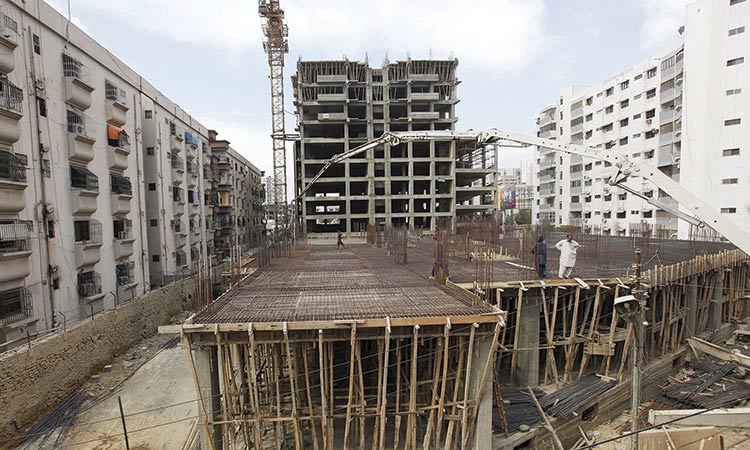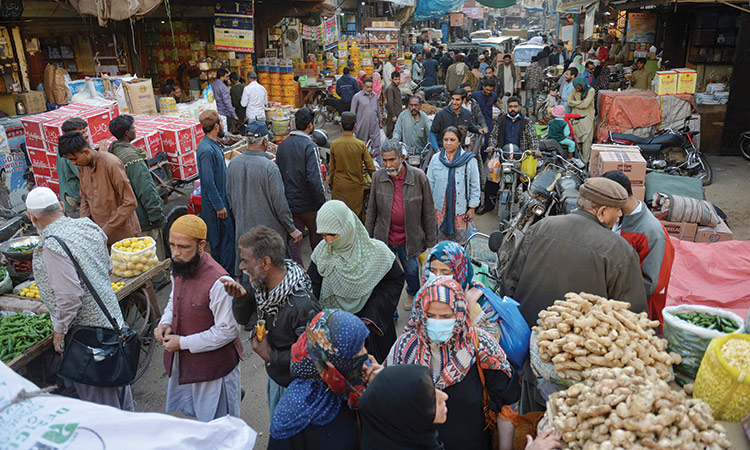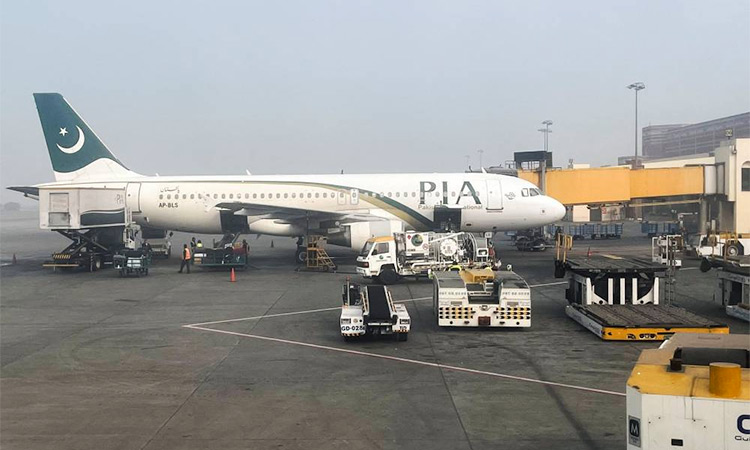Pakistan opens talks with IMF seeking more cash

Pakistan's Finance Minister Miftah Ismail speaking in Islamabad. (File)
Pakistan has already asked the IMF to increase the size and duration of its $6 billion programme, with foreign reserves falling as low as $10.3 billion so that they cover less than two months of imports, a widening current account deficit, surging inflation and a plunging currency.
“Talks with the IMF mission started on Wednesday,” the Finance Ministry said in a statement, adding that Finance Minister Miftah Ismail and the acting central bank governor would join the talks virtually.
A finance team has already headed to Doha for consultations with the IMF that are due to last until May 25 before the lender takes a decision, the ministry said.
The rupee weakened to about $198.39 on Wednesday, the central bank said, a historic low that means it has lost almost a quarter of its value in the past year.
The finance minister requested a bigger IMF package on a visit to Washington last month. Following that request, the IMF said Islamabad had agreed to roll back unfunded subsidies to the oil and power sectors.
From March to June, Pakistan is expected to spend about $2 billion on subsidies which have yet to be withdrawn.
The government that took over in April after the collapse of Prime Minister Imran Khan’s administration fears a public backlash if it withdraws the subsidies on which many Pakistanis rely.
About half of the existing package of $6 billion has been disbursed so far, but more recent payments were delayed several times due to IMF concerns about fiscal policy measures.
If the current review is successful, Pakistan will receive more than $900 million, which will help unlock other external financing.
Meanwhile, Tunisia’s central bank on Tuesday raised its key interest rate by 75 basis points to 7% from 6.25% to combat high inflation, the bank said, marking the first hike since 2019.
Inflation rose to 7.5% in April, from 7.2% in March and 7% in February.
The last rate increase was in February 2019 by 100 basis points.
The current account deficit was -2.7% of GDP during the first four months of 2022, compared to -1.7% in 2021, due to the worsening of the trade deficit, the bank said.
It added that exchange reserves reached 23.655 billion dinars ($7.76 billion), equivalent to 124 days of imports on May 16, compared to 23.313 billion dinars or 133 days of imports at the end of 2021.
In a statement, the bank expressed its deep concern about the high inflation trend and called for economic reforms as soon as possible to restore economic growth so as to ensure macroeconomic stability and the sustainability of public debt.
Tunisia, which is struggling to tackle badly hit public finances, is seeking a loan from the International Monetary Fund in exchange for unpopular reforms including spending cuts, wage freezes and cutting energy and food subsidies.
The IMF called also for further monetary tightening by Tunisia to tackle the North African country’s record levels of inflation.
Tunisia is also facing its worst political crisis since the 2011 revolution that brought democracy, after President Kais Saied seized power last year, dismissed parliament and started ruling by decree, in a move opponents called a coup.
Meanwhile, school closures during the pandemic have set back children’s learning in many G20 countries and could have a long-lasting negative impact on GDP in advanced economies, the IMF said.
Recent assessments of schoolchildren show that widespread virtual learning during the Covid-19 pandemic resulted in lower academic levels in India, Germany, the United Kingdom, Brazil and the United States, where many institutions were closed for more than a year.
“If these learning losses aren’t addressed, affected students could experience a lifetime of depressed earnings,” the Washington-based crisis lender said in a report. IMF economists observed that current students will make up nearly 40 percent of the working-age population in G20 economies for decades to come.
“While much is still unknown, our simulations show that, once all such students are in the labor market, gross domestic product for advanced G20 economies could be as much as three percent lower in the long run,” the report warned.
Agencies







